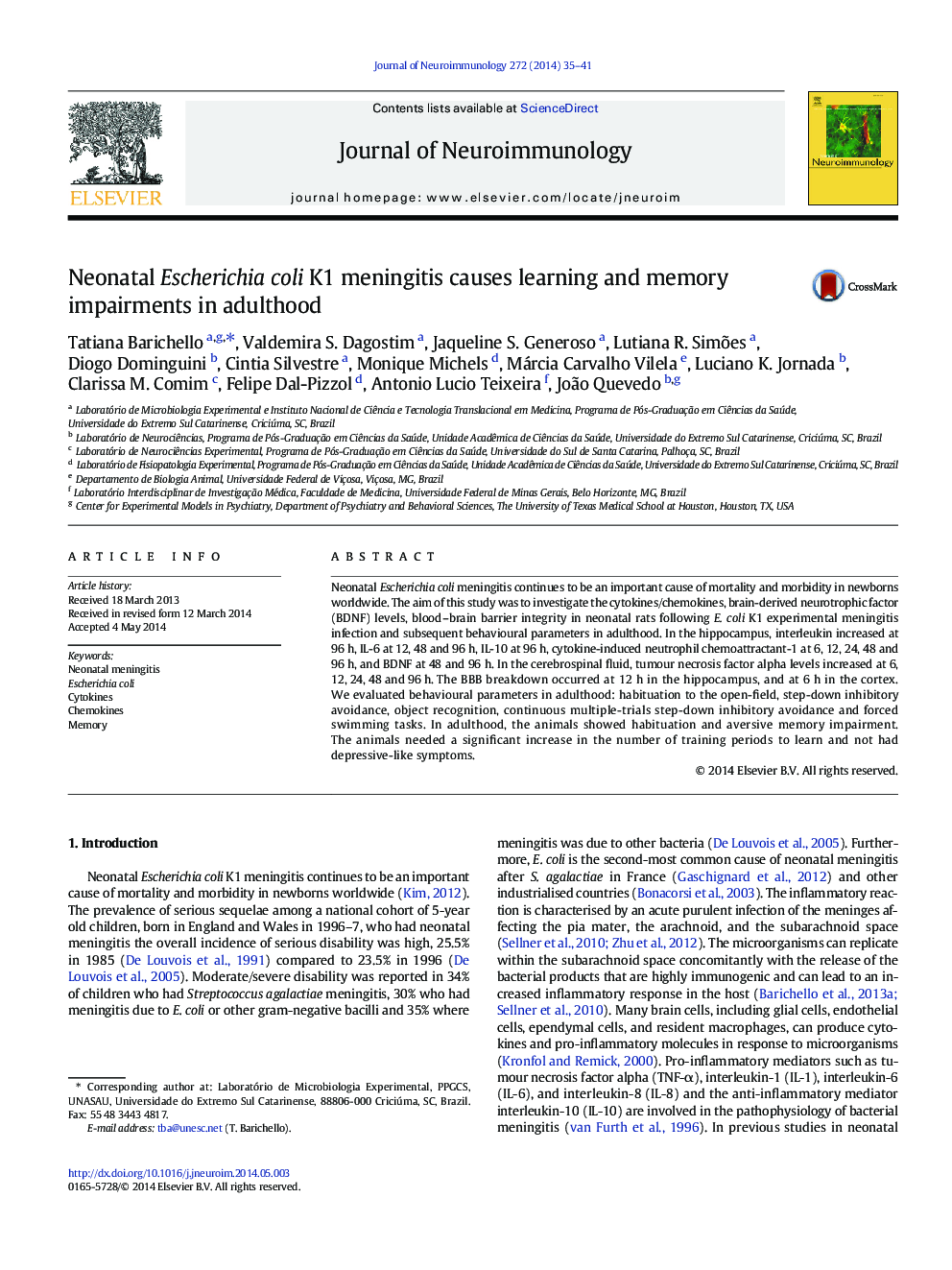| Article ID | Journal | Published Year | Pages | File Type |
|---|---|---|---|---|
| 3064009 | Journal of Neuroimmunology | 2014 | 7 Pages |
•We verified increased of cytokine/chemokine levels in the hippocampus.•The BBB breakdown in the first hours after E. coli K1 meningitis induction.•The animals showed habituation and aversive memory impairment in adulthood.
Neonatal Escherichia coli meningitis continues to be an important cause of mortality and morbidity in newborns worldwide. The aim of this study was to investigate the cytokines/chemokines, brain-derived neurotrophic factor (BDNF) levels, blood–brain barrier integrity in neonatal rats following E. coli K1 experimental meningitis infection and subsequent behavioural parameters in adulthood. In the hippocampus, interleukin increased at 96 h, IL-6 at 12, 48 and 96 h, IL-10 at 96 h, cytokine-induced neutrophil chemoattractant-1 at 6, 12, 24, 48 and 96 h, and BDNF at 48 and 96 h. In the cerebrospinal fluid, tumour necrosis factor alpha levels increased at 6, 12, 24, 48 and 96 h. The BBB breakdown occurred at 12 h in the hippocampus, and at 6 h in the cortex. We evaluated behavioural parameters in adulthood: habituation to the open-field, step-down inhibitory avoidance, object recognition, continuous multiple-trials step-down inhibitory avoidance and forced swimming tasks. In adulthood, the animals showed habituation and aversive memory impairment. The animals needed a significant increase in the number of training periods to learn and not had depressive-like symptoms.
